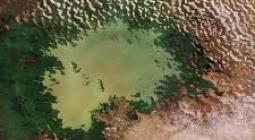CHAD: Beijing finances €38 million for water and sanitation in three provinces

China supports the implementation of drinking water supply and sanitation projects in Salamat, Mandoul, and in the Nubian Sandstone area in Chad. The grant of 27 billion CFA francs (more than 38 million euros) recently awarded will be used in particular to finance the construction of boreholes equipped with human-powered pumps to reduce shortages of drinking water.
The grant of 27 billion CFA francs (more than 38 million euros) was granted on November 16, 2023 via the Ambassador of the People's Republic of China in N'Djamena, Wang Xining. The government of Chad will use this grant to finance the construction of drinking water supply and sanitation facilities in the provinces of Salamat and Mandoul, located respectively in the southeast and south of the country.
According to the Chadian Ministry of Water and Sanitation, these installations will essentially consist of boreholes equipped with human-powered pumps, drinking water plants, beacons to guide livestock to find water points, as well as public toilets. “The completion of this project will allow thousands of Chadians to have a better quality of life ,” assures Wang Xining, the Chinese ambassador to Chad. According to the African Development Bank (AfDB), in 2021, the rate of access to drinking water in Chad barely reached 53%. As for sanitation, the latest ADB report (2017) indicates an access rate of 30%.
The rest of the envelope will be used to finance the study of water resources in the Nubian Sandstone area in the northeast of the country. The aquifer system which extends over 2,000,000 km² also covers the territories of eastern Libya, Egypt, and northern Sudan. “The total quantity of water stored in the Nubian Sandstone aquifer system would be of the order of 540,000 km 3 , but the total exploitable quantity is estimated at only 15,340 km 3 , or less than 3% of the water stored. All countries (Egypt, Libya, Sudan) already exploit the water stored in this aquifer system, except Chad ,” indicates the Chadian Ministry of Water and Sanitation.
In addition to improving the supply of drinking water and sanitation in Chad, the exploitation of Nubian Sandstone will enable the country to cope with drought. “In recent decades, the scarcity of rain has led to soil degradation, reducing agricultural and fishery production, and the continued drying of Lake Chad, from 25,000 km 2 in 1960 to less than 2,500 km 2 today . 'today' , adds the Chadian Ministry of Water and Sanitation.





